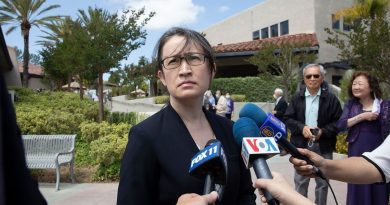Analysis: Wellington City Council is not brand Coca-Cola
ANALYSIS:
Some Wellington City councillors have decided to make no apologies for being politicians in a world where the “politics” of local government is easily misconstrued for bad behaviour.
An independent review into the council was made public this week. Importantly, it did not reveal fundamental dysfunction, but rather a significant tension making decisions difficult, challenging, and fraught.
Reviewer Peter Winder found no case for Government intervention. Wellington City Council is not Tauranga City Council.
Yet councillor Simon Woolf said at a committee meeting today he thought the review was generous and he believed elected members had got off lightly.
He warned colleagues it was their last chance to get things right.
Councillor Jenny Condie said in response she could only assume Woolf was making reference to Crown observers or commissioners coming in.
She said to even imply that in the slightest was unhelpful and potentially misleading to the public.
Condie went as far as saying that if she was a more suspicious person, she would see Woolf’s statement as a threat to his colleagues.
Woolf disputed this characterisation of his words, but didn’t do a lot to set the record straight either.
A good deal of speculation has been made about Government intervention at Wellington City Council, some people have even gone as far as actively calling for it.
But such a position misses the nuance that underneath the theatrics of decision making is the fact decisions are actually being made.
The council’s Long Term Plan deliberations painted a picture of chaos but actually at the end of the day, or in this case a fortnight, elected members agreed on a plan for consultation that included a 13.5 per cent rates increase.
Winder commented this was a significant achievement as many councils would struggle to agree to that rates rise if indeed they could at all.
By adopting a draft LTP the Council demonstrated its ability to do one of its most
important statutory functions- a far cry from dysfunction.
Mayor Andy Foster still noted Winder hadn’t painted them as angels and the review’s findings also said the atmospherics and tenor of some debate could, or in fact already had, undermined trust and confidence in the institution.
But the overall tone of the report is that the situation really isn’t as bad as people perceived it to be.
Winder even said in his review some reactions from elected members and staff bordered on “catastrophising”.
Councillor Fleur Fitzsimons said in today’s meeting she felt council officers spent too much time and energy worrying about the council’s media narrative.
She said every hour spent on the “unhealthy” concern about this was time not spent on delivering council resolutions.
Fitzsimons said any attempts to control the media would not work and were not in the council’s interests.
She worried about the view of the council as a kind of brand, like Coca-Cola.
“If we had more robust debate, if we had that functional and healthy democracy, maybe our water system wouldn’t be in the state it’s in.”
The Winder report established just three examples of when confidential and commercially sensitive information was leaked to media.
Councillor Sean Rush scoffed at that today saying there has definitely been more than three leaks.
Winder didn’t agree that emails between councillors being given to journalists was leaking, something which he said was the political tactic of briefing.
Rush on the other hand does think it’s leaking, as do several of his colleagues.
But if any councillor is uncomfortable with the thought of their emails being released through more formal channels like the Local Government Official Information and Meetings Act, then they should probably just pick up the phone.
Some councillors have proactive relationships with the media and others don’t.
It’s clear the importance and usefulness of that relationship isn’t particularly well understood by some around the table.
Politicians need journalists because of the number of people who read the platforms they write for.
Journalists need politicians as a source of information for their work in holding people to account.
It’s a dance of sorts between working out people’s agendas, being fair and balanced, and getting to the truth.
Councillor Rebecca Matthews said the idea the review was somehow going to remove the politics from Wellington City Council was naïve.
“We cannot fool ourselves to think that we’re ever going to take the politics out of politics.”
In fact a lack of good political judgment, specifically displayed by the mayor in his inability to build consensus, is arguably what created the unwanted atmospherics and subsequent trust erosion in the first place.
Source: Read Full Article

/cloudfront-ap-southeast-2.images.arcpublishing.com/nzme/WE2TFIQMLDJTTJAQWKOUS7PFIU.jpg)
/cloudfront-ap-southeast-2.images.arcpublishing.com/nzme/J5DLBOWP4VWEEICY3DA6WG3ARE.jpg)


